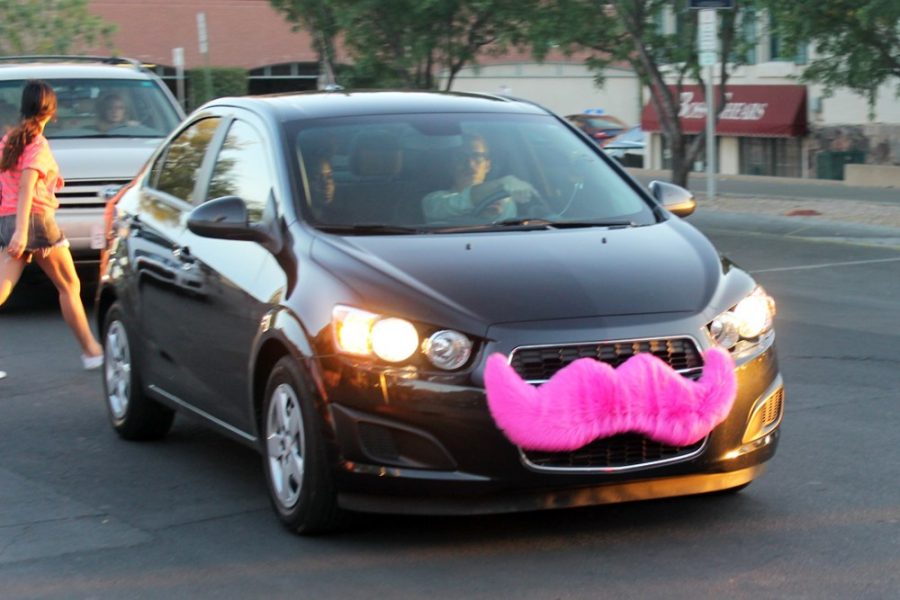Customer usage of ride-sharing companies is growing exponentially across the country. Although UA students use them for late night rides to a fraternity or In-N-Out Burger, according to the state, these businesses are operating illegally.
Gov. Jan Brewer vetoed a bill that would have put ride-sharing businesses under different standards than cab companies in the state of Arizona in April 2014.
Companies such as Lyft and Uber, two of the best known ride-sharing organizations, have different insurance structures than cab companies and have gaps in their insurance coverage, which is a financial risk for the drivers and passengers.
In response, cab drivers around the state, and around the UA campus, have been sharing their feelings by writing slogans like “Lyft and Uber are ILLEGAL!” on the backs of their cabs. Cab companies say these third party companies have shortcut the rules that cabs have to abide by.
Charlie Hawatmeh, a cab driver for Sahuarita Taxi, has written: “Do NOT take Lyft and Uber … ILLEGAL!” on the back of his car.
“It really comes down to the safety of the passengers,” Hawatmeh said.
Ride-sharing services claim that they are not subject to the same laws as cab companies because their service is to match drivers with empty seats to passengers, not to provide transportation.
The services work by having UA students use their Lyft or Uber apps on their smartphones and drop a pin where they are located. A third-party driver will come pick them up in the driver’s personal vehicle. The companies set the price of the trip based on the distance traveled to the destination and the time spent driving. The charges go directly to students’ credit cards, which are already set up in the app, so no form of payment is necessary at the end of the ride.
Shawn Marquez, deputy director for the Arizona Department of Weights and Measures, the department that regulates cab companies in the state, said that ride-sharing services lack the same safety measures as cab companies.
“They do not have commercial insurance, and they don’t have commercial license plates,” Marquez said.
He also said that Uber and Lyft do not provide adequate drug testing, and some drivers lack commercial licenses, which are required by law.
Both companies plan to continue operating in Arizona and working with officials to try to change the laws to operate legally.
—Follow Courtney Rice @DailyWildcat









